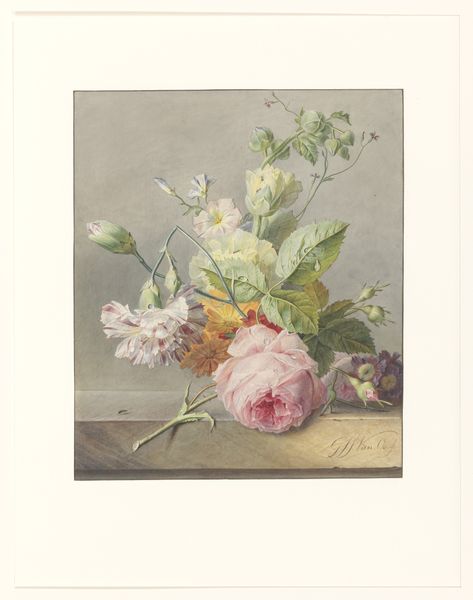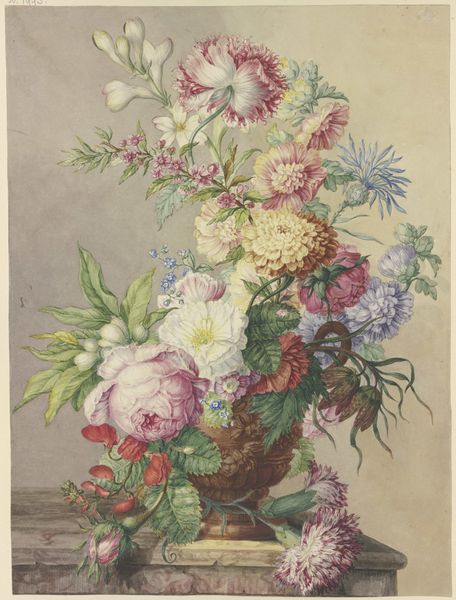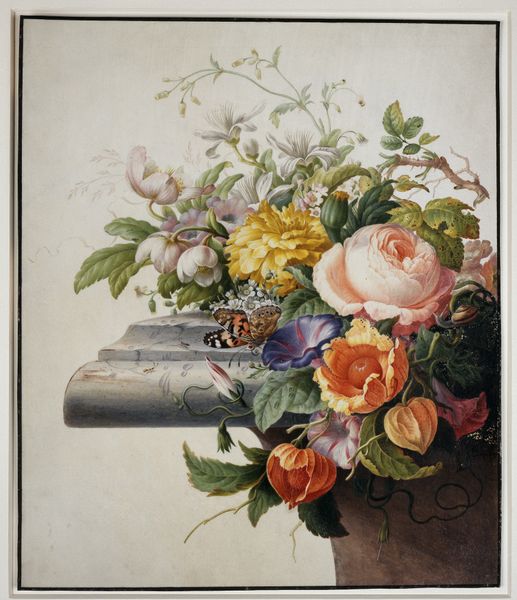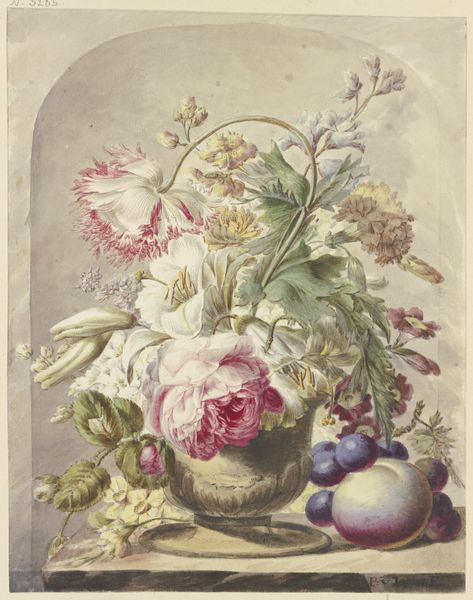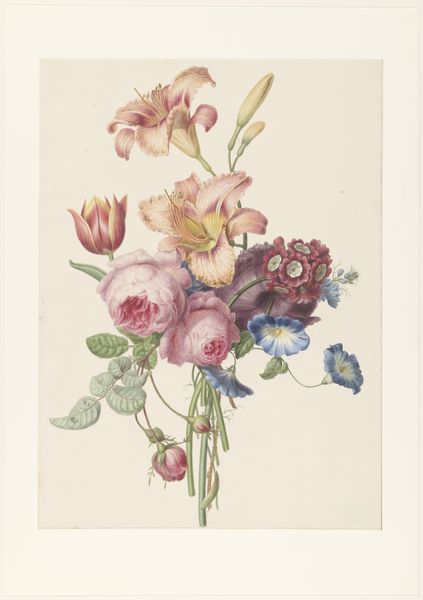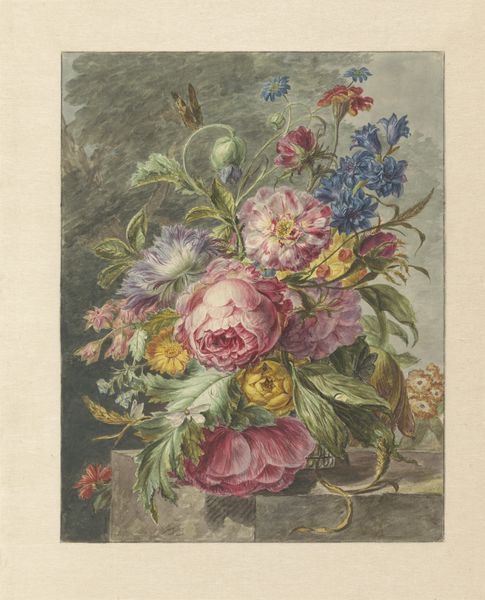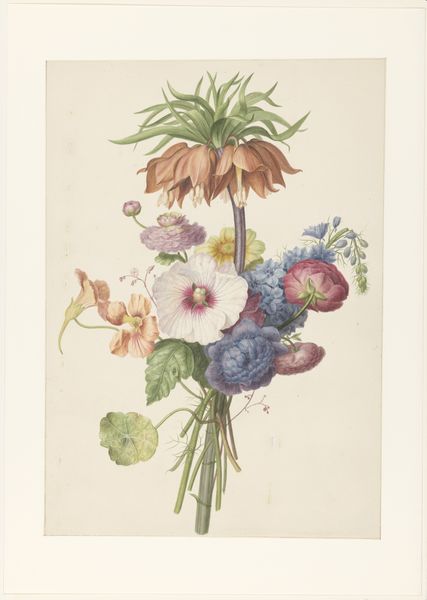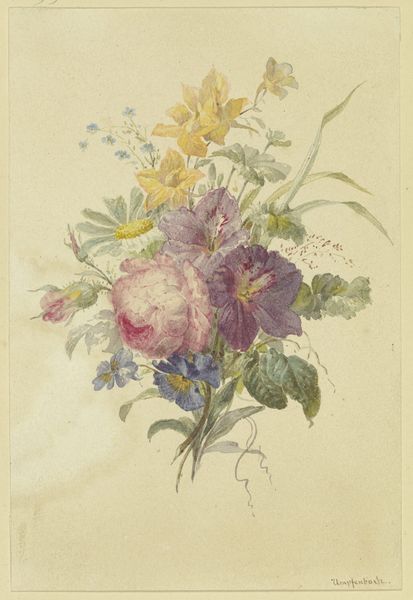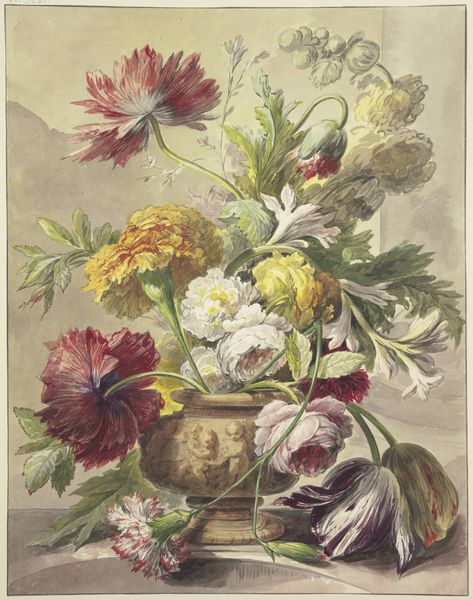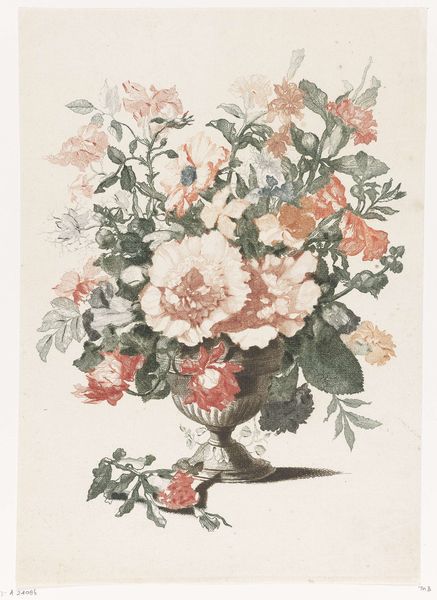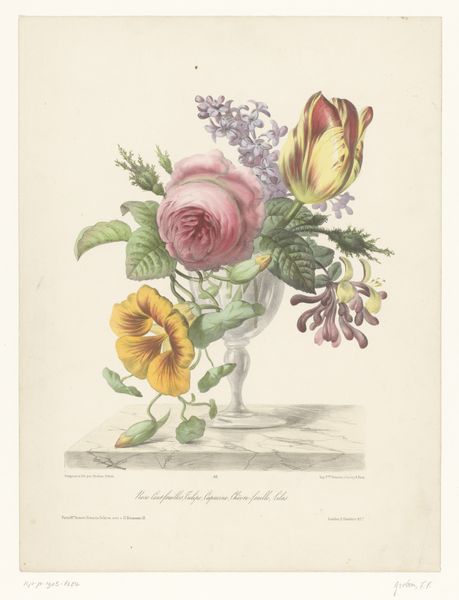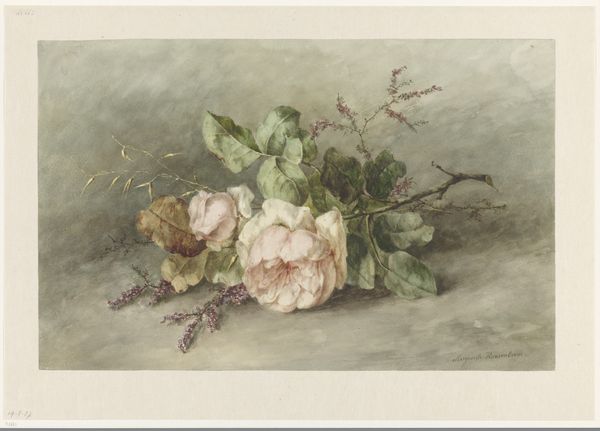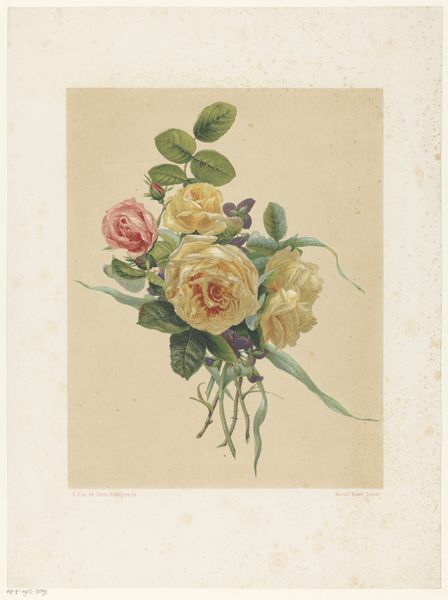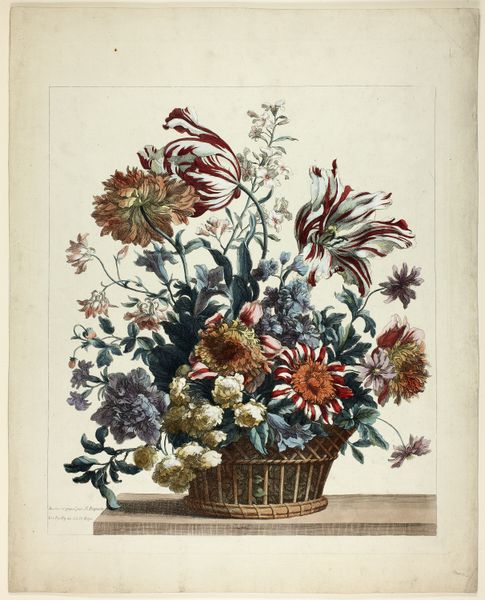
painting, watercolor
#
baroque
#
painting
#
watercolor
#
watercolor
Dimensions: height 374 mm, width 299 mm
Copyright: Rijks Museum: Open Domain
Herman Henstenburgh made this watercolor painting of flowers in a glass vase sometime between 1680 and 1726. The artist has used watercolor on vellum, a parchment made from animal skin, which gives the surface a luminous, almost glowing quality. Henstenburgh was known for his detailed still lifes, and this is no exception. Look closely, and you'll see the meticulous attention to detail – the delicate veins on the leaves, the subtle gradations of color in the petals. The artist’s technique here is a fine example of the Dutch tradition, celebrating the beauty of the natural world through careful observation and skilled craftsmanship. Beyond their aesthetic appeal, flower paintings like this held symbolic meaning for their original audience. The fleeting beauty of the blooms reminded viewers of the transience of life, and the importance of cherishing each moment. Though the artist deploys a traditional medium and genre, it is clear that they did so with a unique vision and masterful execution.
Comments
rijksmuseum over 2 years ago
⋮
Herman Henstenburgh is known for the pure and powerful colours with which he rendered his remarkably soft, even rarefied, floral still lifes. He often painted them on costly parchment, such as here. In spite of his fame and the expensive materials he used, one wonders whether he actually made a living from his art: he also worked as a pastry baker until his death.
Join the conversation
Join millions of artists and users on Artera today and experience the ultimate creative platform.
